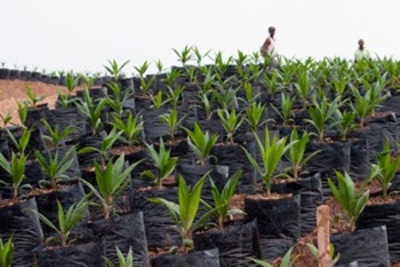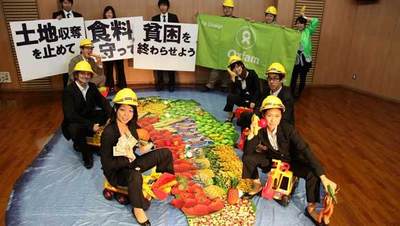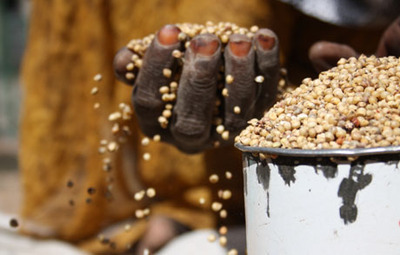PNG land scandal
- ABC
- 14 October 2012
Logging companies in PNG are using special agricultural leases to clear vast tracts of rainforest timber, on the promise of roads and economic development for remote villages. Jemima Garrett investigates.

Logging companies in PNG are using special agricultural leases to clear vast tracts of rainforest timber, on the promise of roads and economic development for remote villages. Jemima Garrett investigates.

The island's biodiversity threatened by plans to expand a palm oil plantation from 610 ha to 5,000 ha, through a 2009 deal signed with the Belgian company Socfinco.

Japan wants to grow corn on Ukraine's black earth and import it while Ukraine suggests that Japan, as a "hi-tech country", invest in Ukrainian farmland.

Researchers find that bulk of deals to lease out land are struck in 32 of the countries ranked “alarming” or “serious” on the Global Hunger Index score.

Today, Laguna Lake is considered by many fisherfolks as a dying lake. Its ecosystem has been destroyed by the government's forced prevention of the entry of seawater, pollution from factories and cities surrounding the lake, and continuing reclamation and development projects under the government's Public-Private Partnership (PPP) programme.

Of the $4.2 billion that the International Finance Corporation, the private sector arm of the World Bank Group, invested in agribusiness and forestry in the same period, just three investments – or 2 percent – had any component related to land acquisition.

Derek Byerlee, co-author of a recent World Bank report The Rising Global Interest in Farmland, says world is running out of productive land and foreign investor and corporate land sales are on the rise across the globe.

Hong Kong-listed Chevalier Group is set to emerge as a major supplier of fresh produce to Woolworths and Coles by acquiring a significant share of a leading Australian fruit and vegetable wholesaler and grower.

BrasilAgro highlighted the gains to be made from Brazilian farmland by selling a second farm from its 170,000-hectare portfolio for a large gain.

Growing scarcity and degradation of farmland, rapidly rising incomes, and changing consumption patterns have all contributed to an increasing number of international land investments or land deals.

It is important to unpack what land grabbing really involves if we are to understand what is really happening.

While much debate and analysis have focused on the social and environmental impacts of the ‘land grabbing’ phenomenon, the legal and development implications still remain understudied.